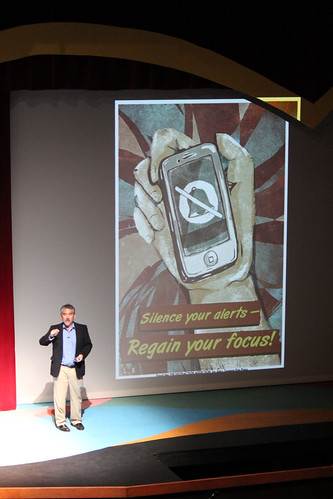As someone who wrote a book called The Distraction Addiction, this new study by University of Illinois researchers Alejandro Lleras and Tayana Panova caught my eye:
Is cellphone use detrimental to mental health? A new study from the University of Illinois finds that addiction to, and not simply use of, mobile technology is linked to anxiety and depression in college-age students.
Put another way, there are a couple ways to explain the detrimental impacts of mobile technology.
One is to argue that the technology affects your brain, or social relations, no matter who you are: that any human, using this technology, will experience negative effects.
The other is to argue that the culprit is not technology per se, but addiction. (This is similar to the argument about the impacts of alcohol: a glass of wine with dinner probably won’t do you any harm, but addictive behavior and overconsumption are definitely destructive. A recent study of porn reached a similar conclusion.)
So sort this out, Lleras and Panova surveyed undergraduates about their technology use, attitudes towards technology, and their mental health. They asked questions like, “Do you think that your academic or work performance has been negatively affected by your cellphone use?” and “Do you think that life without the Internet is boring, empty and sad?”
So what did they find?
“People who self-described as having really addictive style behaviors toward the Internet and cellphones scored much higher on depression and anxiety scales,” Lleras said. However, the researchers found no relationship between cellphone or Internet use and negative mental health outcomes among participants who used these technologies to escape from boredom. Thus, the motivation for going online is an important factor in relating technology usage to depression and anxiety, Lleras said.
Or as Lleras and Panova explain in the abstract of their article (published in Computers in Human Behavior),
There were strong positive relationships between lower mental health and problematic ICT use, especially when people turned to ICTs to avoid negative experiences or feelings. However, when participants used ICTs merely to escape boredom, no link was found between ICT use and mental health problems…. Our findings suggest that long term utilization of ICTs as an emotional coping strategy may have a negative influence on mental health and/or exacerbate mental health predispositions.
In other words it’s not just the technology on its own; it’s addiction that’s the problem.

